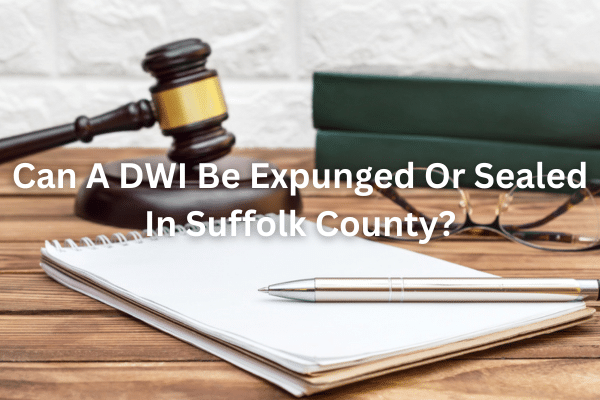
If you’ve just been arrested for DWI in Nassau County, you’re probably scared, overwhelmed, and unsure what happens next. I get it. I’ve spent more than three decades defending people in exactly this position, and my first message is simple: you have options, and the steps you take in the next few days can make a real difference in your case.
The first few minutes of any DWI case are critical. Be respectful, provide your license and registration, but do not volunteer information. You are required to identify yourself; you are not required to explain where you’re coming from, what you drank, or how much. Politely say, “I want to remain silent and I want a lawyer.” Do not argue at the roadside or at the precinct. Every word and every movement may be recorded and later used in court.
People often think they can explain themselves. “I’m tired,” “I only had one,” “I’m bad with balance tests.” Those explanations rarely help and often make things worse. Officers are trained to ask questions that produce admissions. Short, courteous answers to identifying questions only. Nothing more.
Officers may ask you to perform field sobriety tests (walk-and-turn, one-leg stand, HGN). These are subjective and often administered under poor conditions—wind, uneven pavement, headlights, stress. Whether to attempt them is case-specific; many drivers don’t realize they are not legally required to perform field sobriety tests in New York. A breath, blood, or urine test (the “chemical test”) is different. New York’s implied consent law means refusing the chemical test can trigger an immediate license suspension and a separate DMV hearing that can result in a one-year revocation and civil penalties, even if the criminal case is later reduced or dismissed. On the other hand, taking the test may create evidence the prosecution uses against you. There isn’t a one-size-fits-all answer, but if you refused or if you took the test, I could still help you navigate the consequences and build a strategy.
Your first court appearance, or arraignment, typically takes place in Nassau County District Court in Hempstead. If there is a breath test result of .08 or higher, the judge can order a “suspension pending prosecution.” In many first-offense cases, you may be eligible to request a hardship privilege so you can drive for work, school, or essential medical care while your case is pending. Timing matters: hardship applications are best handled promptly and with documentation. If your case involves an alleged refusal, the court will impose a temporary suspension, and you’ll receive notice of a DMV refusal hearing. We prepare you for both court and DMV from day one.
Early intervention lets me secure video, 911 calls, calibration and maintenance records for the breath machine, body-worn camera footage, and names of potential civilian witnesses. The sooner I’m involved, the better our chances of preserving key evidence and avoiding preventable license consequences. If you contact me in the first 24 hours, I can often speak with family, arrange surrender (if needed), and help you avoid common pitfalls.
If the court suspends your license, do not drive unless you have a hardship privilege or a conditional license later through the DMV. A charge for aggravated unlicensed operation can turn a manageable case into a much more serious situation. Ask me what transportation options or privileges might apply in your specific circumstances.
As soon as you’re safe at home, write down what happened, step by step: where you were coming from, what you ate and drank (and when), where you were stopped, what the officer said and did, what tests were requested, and how you performed. Save receipts, texts, maps history, photos, and names of anyone who saw you before the stop. Small details—like a pothole near the stop location or a late-night allergy attack—can matter.
Every case is different, but a strong defense usually includes several layers:
Local practice matters. Arraignments move quickly; judges expect organized documentation for hardship applications; and prosecutors watch for early compliance with any court-ordered conditions. My team helps you complete alcohol assessments when necessary, schedule DMV hearings, and take the right steps toward the best possible resolution from day one.
Even a first-offense DWI can bring fines, surcharges, license suspensions, ignition interlock upon conviction, and a permanent criminal record. Insurance premiums can rise, professional licenses can be affected, and travel plans can be disrupted. The goal is to minimize or avoid these consequences through careful, aggressive, and informed defense work tailored to Nassau County practice.
I’ve represented thousands of people facing DWI charges across Long Island, and I never forget that you’re a person with a job, a family, and a future. My commitment to client satisfaction is the core of my practice. I’ll keep you informed, return your calls, and fight to protect your license, your record, and your peace of mind.
If a case leads to a DWI conviction, New York requires an ignition interlock device for a period set by the court. There are often ways to manage this burden, and in many cases we can avoid a criminal DWI conviction altogether. Let’s talk early so we can position your case for the most favorable outcome.
If you or a loved one has been arrested for DWI in Nassau County, contact me today. I’m Ed Palermo, and for over three decades I’ve defended people in Nassau County District Court and throughout Long Island. I’ll review your situation, explain your options in plain English, and get to work immediately to protect your driver’s license and your future.

If you’re worried about how a past DWI affects your future, you’re not alone. I regularly meet Suffolk County residents who want to know whether a DWI can be wiped away, or at least hidden from view. Here’s what we can do about it.
New York does not offer traditional “expungement” for most adult criminal convictions, including DWI. However, New York does allow certain convictions to be sealed, and in some situations a DWI may qualify for sealing under CPL §160.59 after a waiting period. Separately, many non-conviction outcomes (dismissals) are sealed automatically, and certain lesser alcohol-related dispositions are treated differently than a DWI crime. The details matter, and that’s where a tailored strategy comes in.
Expungement- permanently erases a conviction as if it never existed. New York rarely provides this remedy for adult convictions.
Sealing- restricts who can see the record. If a case is sealed, the public and most employers cannot access it, but law enforcement, prosecutors, and the courts can, and certain government-regulated employers may still have lawful access.
New York’s alcohol-related driving laws include both crimes and non-crimes:
This difference is crucial. A DWAI infraction does not show up on a criminal history the same way a misdemeanor or felony does, and different sealing rules apply. Meanwhile, the DMV driving record is its own system with its own retention rules—sealing a court file does not make a DMV entry vanish.
New York’s sealing statute lets a court seal up to two convictions total (only one may be a felony) if specific conditions are met. Key points:
If you’re eligible, we file a motion with supporting documents. The Suffolk County District Attorney can consent or oppose. A judge ultimately decides after weighing statutory factors.
A thoughtful, well-documented application makes a real difference.
Dismissed/Acquitted: Under CPL §160.50, cases that end in your favor (dismissal, acquittal) are generally sealed automatically.
Violations and Infractions (Including Many DWAIs): Under CPL §160.55, many violations are sealed in the criminal-history system, but again the DMV driving abstract is different. You may still see an entry on the driving record even when the criminal file is sealed.
First-Offense DWI From Many Years Ago: If more than 10 years have passed, you have no new convictions, and you’ve built a stable life, you may be a strong candidate for sealing.
Reduced To DWAI: You likely avoided a criminal conviction, but DMV may still show an alcohol-related incident. We focus on protecting your employment background while advising on how DMV entries may affect insurance or future penalties.
Felony DWI With Good Rehabilitation: You can seek sealing of one felony if otherwise eligible. Success turns on documentation and advocacy.
Recent Case: If your case is pending or recent, we concentrate on defending the charge now. Outcomes we can negotiate today may position you better for the long term.
Eligibility Review: I analyze your complete New York record, the exact statute(s) of conviction, and the ten-year waiting calculation.
Document Gathering: Proof of employment, education, treatment, community service, character letters, and anything else showing growth.
Drafting The Motion: A persuasive memorandum tying your story to the statutory factors, plus exhibits.
DA’s Position: The Suffolk County DA can object, consent, or take no position.
Hearing And Decision: Some cases are decided on papers; others include argument. If granted, the clerk transmits the sealing order to relevant agencies for implementation.
DIY Without A Full Record Pull: Small details (like an old violation in another county) can derail eligibility if not addressed up front.
Promising Employers “It’s Gone Forever”: Sealing is powerful, but it isn’t expungement, and DMV/agency access still exists.
Ignoring Online Footprints: If publicity is a concern, plan for content removal or suppression alongside the court motion.
For more than three decades I’ve defended people in Suffolk County courts and guided many through post-conviction relief. My approach is hands-on: I learn your goals, audit your record, and build a sealing motion that presents you at your best—organized, personal, and supported by evidence. If sealing isn’t available, I’ll be candid and pivot to other options, from certificate applications to proactive career-safe disclosures and reputation strategies.
You probably can’t expunge a DWI in New York, but sealing may be possible especially if enough time has passed, your record is otherwise limited, and you can demonstrate rehabilitation. The outcome is never automatic. It turns on careful eligibility analysis and strong presentation to the court.
If you’re wondering whether your Suffolk County DWI can be sealed—or how to protect your future—reach out. I’m Ed Palermo, and I’m ready to review your record, explain your options, and fight for the cleanest path forward. Call or send a message, and let’s get started.